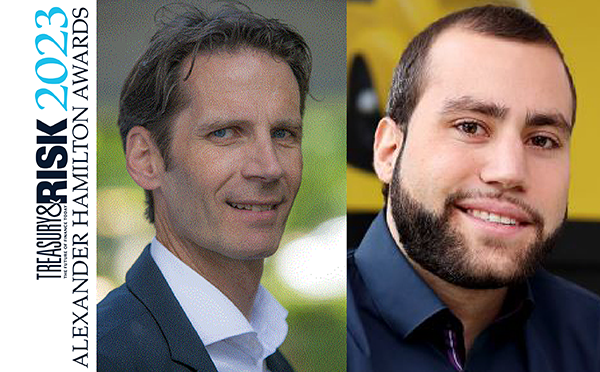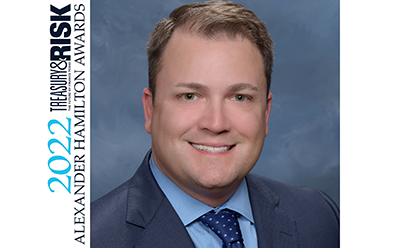Treasury and finance professionals from Asia to the United States generally are optimistic about their companies' performance and U.S. economic growth over the next 12 months, according to EuroFinance/J.P. Morgan electronic surveys done at two conferences earlier this month.
Using instant voting technology, EuroFinance measured sentiment at the U.S. conference, made up largely of corporate treasurers and finance professionals from across the United States, which was held May 9-11 in Florida and focused largely on the North and South American and European economies. Another conference, held in Singapore on May 9, focused on Asia and used the same voting method. Here are some findings based on the instant voting:
- 81% of the U.S. conference attendees are optimistic about their companies' performance in the next 12 months. A similar question in Singapore found 67% are optimistic about company performance. 58% of the U.S. attendees also are optimistic about the U.S. economy's performance in the next 12 months.
- 60% of U.S. professionals believe China's economy will slow further, while 45% of Singapore attendees aren't very worried about a slowdown and 40% don't believe there will be a significant slowdown. 21% of U.S. attendees believe China's economy will grow faster.
- 58% of U.S. attendees believe the euro will depreciate between 5% and 15% against the U.S. dollar in next 12 months. 40% of Singapore attendees agree, while 36% think it will remain about the same.
- 52% of U.S. attendees say the European financial crisis has had some impact on their company. This compares with Asia, where 48% say the crisis has had some impact on their business, and 13% say it has had a considerable impact.
More specific to the concerns of treasury professionals are questions on forecasting, refinancing and cash investment.
- 37% of U.S. attendees say the biggest barrier to effective forecasting is that the rest of the business doesn't communicate well with their department. This was echoed by Asian attendees, where 46% cite communication problems. Having the right technology tools is an issue for 34% of U.S. attendees, while 29% of their Asian peers face that problem. The biggest barrier to forecasting for the Asian group is volatility in sales, financial markets, etc., while 30% of U.S. professionals see that as a problem.
- 40% of U.S. attendees and 53% of Asian attendees protect their supply chain by working with banks to provide financing. 27% of U.S. and 30% of Asian attendees squeeze the supply chain, while 25% of U.S. and 37% of Asian attendees offer better payment terms.
- With U.S. corporates' cash reserves at an all-time high, the method of investing was fairly distributed in both groups: 24% of U.S. attendees are using cash for mergers and acquisitions, 22% for reducing debt and 22% distributing it to shareholders. In Asia, 25% are investing cash in M&A, 21% are paying down debt and 18% are making diversified investments.
- When asked where their most important growth plans are globally, attendees went local. While 60% of U.S. attendees cite Latin America, 33% say China and 33% the rest of Asia, 70% of Asian attendees say Asia (outside of China) and 60% say China. Only 18% of Asian attendees are looking to grow in Latin America.
In Asia, almost 50% of attendees also say there will be a fully convertible renminbi within 5 to 10 years, while 18% believe it will take less than five years. Anil Gupta, a professor at the University of Maryland's Smith School of Business and a leading expert on China and India, agrees the renminbi will be convertible within 5 to 10 years. One of China's goals, to make Shanghai a global financial center, cannot be accomplished unless the currency is fully convertible, he says. A year ago, Gupta asked an economist at the People's Bank of China which was more important to them, to control the currency or make Shanghai a global financial center. The answer, he says, was Shanghai.
For another recent look at the views of treasury professionals, see Risk Challenges Loom Larger.
© 2025 ALM Global, LLC, All Rights Reserved. Request academic re-use from www.copyright.com. All other uses, submit a request to [email protected]. For more information visit Asset & Logo Licensing.





